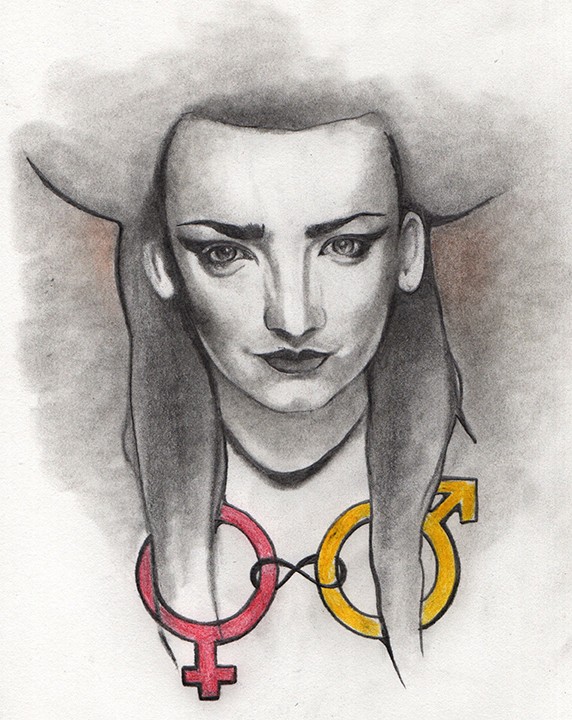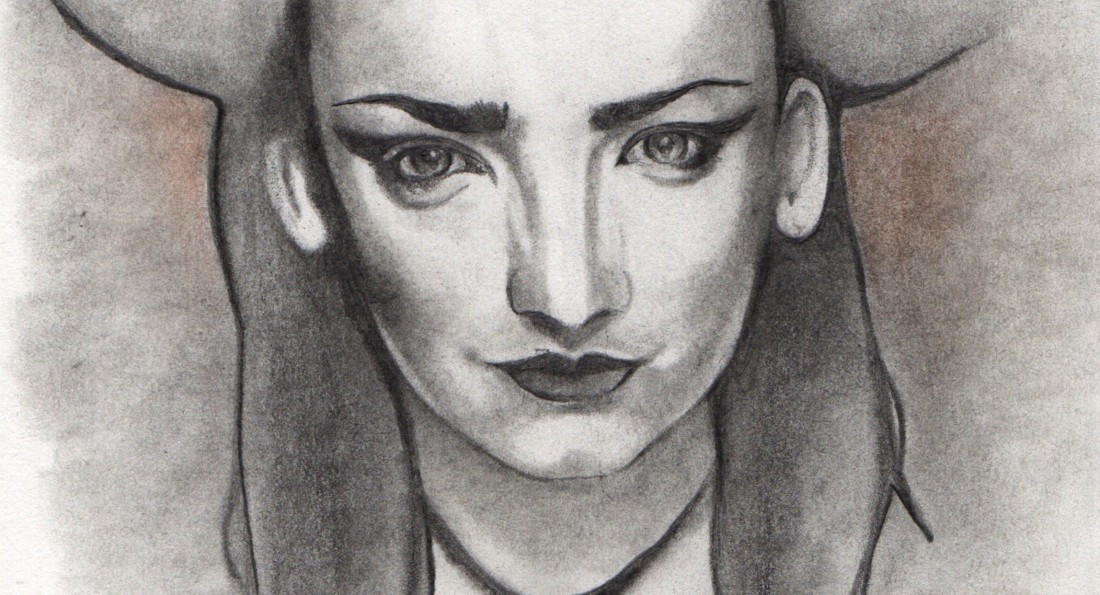Queer pop music since Boy George
Communities embrace musicians who speak to them

Music in queer culture is about community and finding equality on the dance floor. Whether it is Boy George or P!nk, artists who rep for the LGBTQ+ and queer communities are making that positive space for people.
With Culture Club on a 2016 comeback tour and a new album in the works, the impacts of Boy George’s refusal to conform to traditional gender roles are highly visible once again.
“I loved Culture Club back in the day,” Dar Lepine, who goes by Breyanna Burlesque as one of Club 200’s headlining drag queens, says. “Especially being such a different kind of child and seeing Boy George all glammed up and feminine.”
Lepine says he is a fan of music from any decade and that relevance is subjective. “I think anyone is relevant at any time, to be honest.”
For George’s 2013 solo album, This is What I Do, he talked to the Huffington Post about his inspiration for songwriting, one of which was a relative’s 18-year-old son who had recently come out.
“The conversation around that was just bonkers to me. It was like, are we still having this fucking conversation?” he says.
Lepine speculates there is more openness and ease of expression among today’s youth, and social media plays an important part in that.
“People coming out in the public eye is great for the LGBTQ+ community,” he says. “It shows that it’s okay to be who you are. There are people there for you.”
Lepine names P!nk as a person of note when it comes to spreading that message.
“My go-to is P!nk. She’s my number one,” says Lepine. “I love her ‘this is me’ attitude. ‘You like it? I love it. If you don’t like it, I don’t care.’ I find she’s a very positive role model.”
Lepine says he finds it disheartening to see so much negativity online, and he admires those who go in the opposite direction.
Michael Oliveira, DJ Wizzard at Club 200, echoes these sentiments. He says because of the level of judgement online, mainstream music can be a less positive space than it was in the ’80s.
“Back in those days, the rights were diminished. But when it came to the music scene, it was almost like a different scene altogether,” he says.
When looking for acceptance in the music scene of 2016, Oliveira says it depends entirely on the genre. He says electronic and dance music are positive spaces, but that reggae and hip hop remain homophobic for the most part.
He cites Frank Ocean as an exception and says his contributions are huge.
“I personally feel that I can’t see an across-the-board improvement until we as a music community can actually come together as one,” Oliveira says.
Lepine, who has been a drag queen for 16 years, says he has found that sense of community on the dance floor at queer-friendly clubs. He says no matter what decade the music is from, it’s always upbeat and something that everyone is drawn to, whether they came ready to dance or not.
Published in Volume 71, Number 11 of The Uniter (November 17, 2016)







